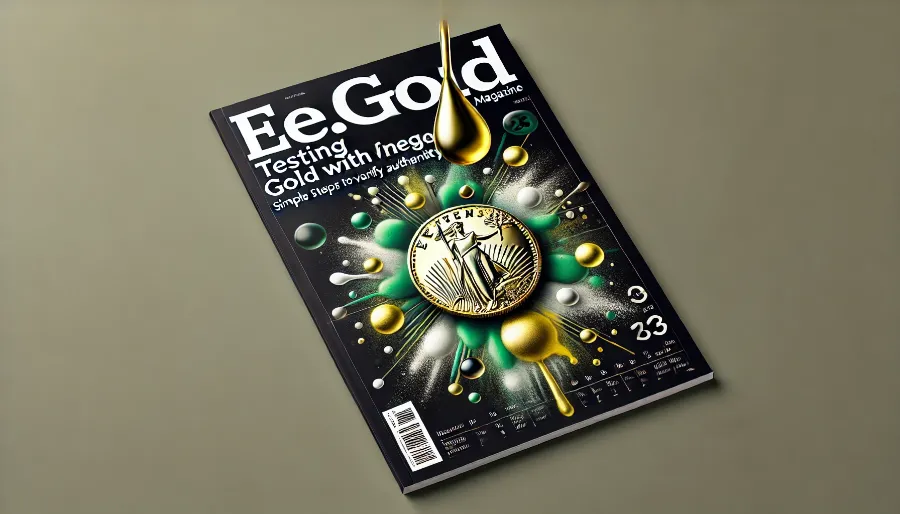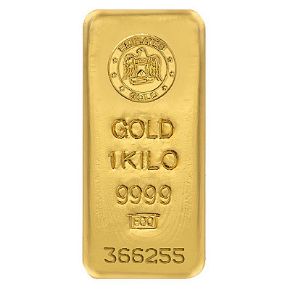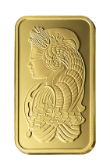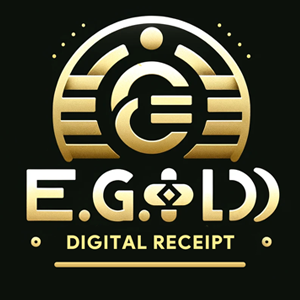
Gold is one of the most valuable and sought-after metals in the world. Whether you’re an investor, a collector, or someone who simply owns gold jewelry, verifying its authenticity is essential. While professional testing methods like acid tests or XRF analyzers are highly accurate, there’s a simpler way to check if your gold is real—using vinegar. In this guide, you’ll learn how to safely and effectively test gold with vinegar from the comfort of your home.
Why Test Gold with Vinegar?
Testing gold with vinegar is a quick and cost-effective method to determine its authenticity. Vinegar is acidic enough to react with fake gold or other metals, but pure gold remains unaffected due to its high chemical resistance. This makes vinegar a reliable household solution for a basic gold test.
What You Need to Test Gold with Vinegar
Before starting the test, gather the following items:
- White Vinegar: Use standard white vinegar for the test, as it is the most effective and widely available.
- Gold Item: Jewelry, coins, or bars you want to test.
- Container or Dropper: To apply vinegar safely.
- Soft Cloth or Paper Towel: For cleaning and drying the gold after testing.
Step-by-Step Guide: Testing Gold with Vinegar
Step 1: Clean the Gold Item
Begin by cleaning your gold item to remove any dirt, grease, or residues. Use a soft cloth and mild soap with water. This ensures accurate results by exposing the gold surface directly to the vinegar.
Step 2: Inspect the Gold for Markings
Check for purity markings, such as “24K” or “18K,” which indicate the gold’s karat value. While markings are not definitive proof of authenticity, they provide a clue about the gold’s potential purity.
Step 3: Apply Vinegar
Using a dropper or small container, apply a few drops of white vinegar directly onto the gold item. If you’re testing jewelry or coins, ensure the vinegar contacts an uncoated surface (avoiding plated areas).
Step 4: Observe the Reaction
Let the vinegar sit on the gold for about 1-2 minutes. Observe closely:
- If the item is real gold, it will remain unaffected. There will be no discoloration, tarnishing, or bubbling.
- If the item is fake or contains other metals, you may notice discoloration, a greenish tint, or bubbling as the vinegar reacts with non-gold components.
Step 5: Rinse and Dry
After the test, rinse the gold item thoroughly with water to remove any vinegar residue. Dry it with a soft cloth to prevent moisture damage.
Interpreting the Results
Real Gold
Pure gold does not react with vinegar due to its chemical stability. If your gold item shows no changes in color or texture, it is likely genuine.
Fake or Impure Gold
If the item tarnishes, changes color, or produces bubbles when exposed to vinegar, it may be fake or made of base metals with a gold coating.
Limitations of the Vinegar Test
While the vinegar test is a simple and effective method for checking gold, it has its limitations:
- Does Not Determine Purity: This test cannot specify the karat or percentage of gold in the item.
- May Not Detect Gold Plating: Vinegar may not react to items with thick gold plating, as the outer layer could shield the base metal underneath.
- Less Accurate Than Professional Methods: For precise results, consider using advanced tools like acid tests, electronic testers, or XRF analyzers.
When to Seek Professional Testing
If the vinegar test raises doubts or you need detailed information about your gold’s purity, seek professional testing. Local jewelers, pawnshops, or precious metal dealers often provide gold testing services using acid kits, electronic testers, or spectrometers.
Tips for Testing Gold Safely
- Avoid Scratching the Gold: Be cautious not to damage your gold item during testing, especially if it’s a collectible or heirloom.
- Use Real Gold for Comparison: If possible, test a known genuine gold item alongside the suspected gold to compare results.
- Don’t Overapply Vinegar: A few drops are sufficient; excessive application may cause unnecessary wear on non-gold components.
Frequently Asked Questions
1. Can vinegar damage real gold?
No, vinegar does not damage pure gold due to its chemical inertness.
2. Is the vinegar test accurate for gold-plated items?
The vinegar test may not detect gold-plated items with a thick outer layer, as the coating can prevent the vinegar from reacting with base metals.
3. Can I use other types of vinegar?
White vinegar is the most effective due to its high acidity. Other types, like apple cider vinegar, may work but could produce less noticeable reactions.
4. What should I do if my gold item reacts to vinegar?
If your gold reacts, it may be fake or contain impurities. Consider professional testing to confirm its authenticity.
5. Are there better ways to test gold at home?
Yes, other home methods include magnet tests, density tests, and acid tests, which can complement the vinegar test for more accurate results.
Enhancing Your Gold Testing Skills
Learning how to test gold with vinegar is a great starting point for verifying authenticity, but combining this method with additional at-home or professional techniques can give you more accurate results. Here are some complementary methods to consider:
Magnet Test
Gold is non-magnetic, so genuine gold will not be attracted to a magnet. If your item is drawn to a magnet, it may be fake or made of gold-plated base metals. Use a strong magnet for the best results.
Density Test
Gold has a high density of approximately 19.32 g/cm³. Using a scale and water displacement method, you can calculate the density of your item to check if it aligns with gold’s unique properties.
Acid Test
Gold acid testing kits use nitric acid to determine gold purity. By applying acid to the gold surface, you can observe how it reacts and compare the results to a provided chart. Acid tests are more accurate than vinegar but require careful handling.
Electronic Gold Testers
Electronic testers are user-friendly devices that can measure gold’s conductivity and purity. While more expensive, they provide precise results and are ideal for frequent testers or collectors.
Professional Spectrometer Testing
Spectrometers use advanced technology to analyze the composition of gold without causing damage. This is the most accurate method and is commonly used by jewelers and dealers.
Protecting Yourself When Buying Gold
If you’re purchasing gold from a dealer, pawnshop, or private seller, it’s essential to ensure the item’s authenticity before completing the transaction. Here are some tips:
Ask for Documentation
Reputable sellers provide certificates of authenticity or assay cards that verify the gold’s purity and weight.
Buy from Trusted Dealers
Purchase gold from well-known dealers or certified mints like the Royal Canadian Mint, Perth Mint, or Valcambi Suisse. These sources guarantee quality and purity.
Avoid Suspiciously Low Prices
If the price seems too good to be true, it often is. Verify the current spot price of gold and compare it to the seller’s offer.
Test Before You Buy
If possible, perform a quick test, such as the vinegar test or magnet test, before finalizing your purchase.
Testing gold with vinegar is a simple, inexpensive way to verify its authenticity. While it has its limitations, this method provides a quick and reliable check for fake or impure gold. For those looking to go further, professional testing can provide precise results about purity and composition. Whether you’re evaluating gold jewelry, coins, or bars, knowing how to test gold with vinegar is a valuable skill for any gold owner.
NOTE
This Content is the copyrighted content of EE.GOLD. All rights are reserved. You are welcome to share or use our content only by including direct links to our website. Any other form of reproduction, distribution, or use without proper attribution is strictly prohibited.
This Content is intended solely for educational purposes. The information provided does not constitute financial or investment advice.
Please note that Digital Storage Receipt, Secure Storage Solutions, and Physical Gold Sales are the only services offered by EE.GOLD.
We strictly adhere to government regulations and are firmly against all illegal financial or investment activities globally.
For further inquiries, feel free to contact us through our official channels.










.png)

